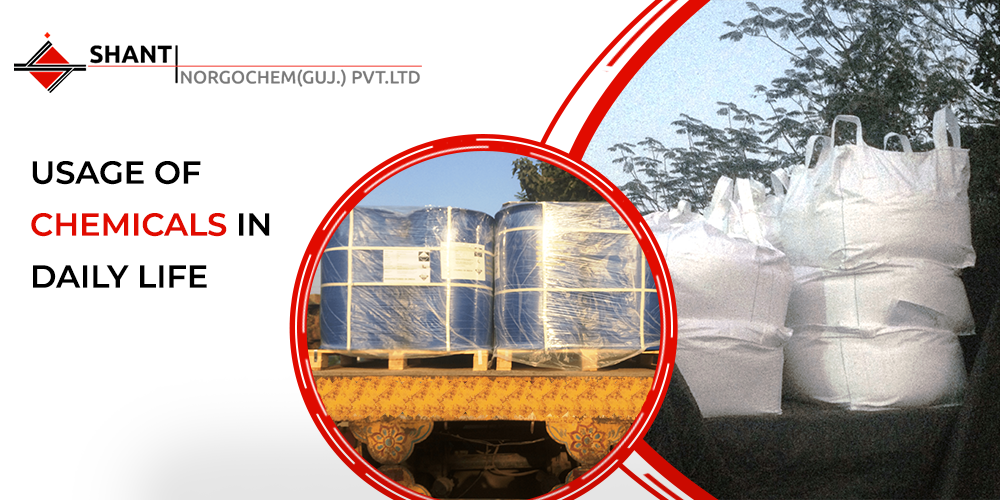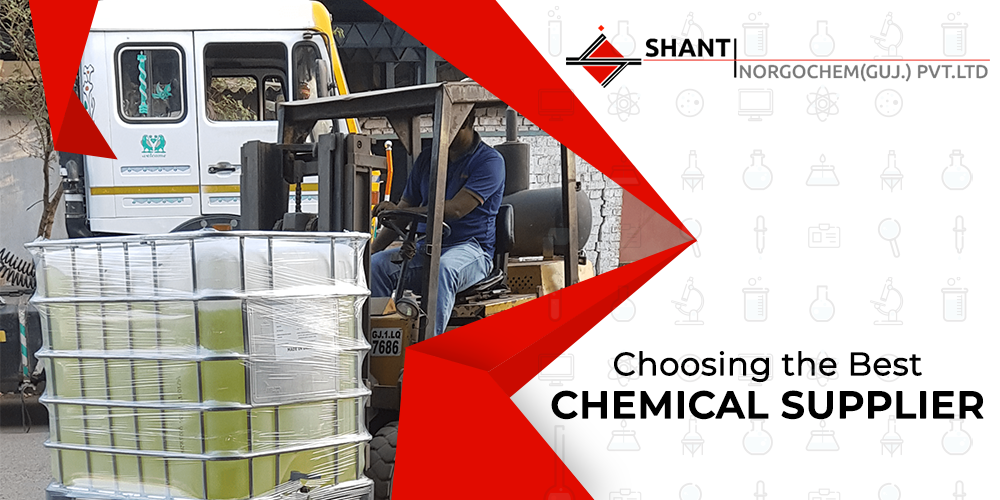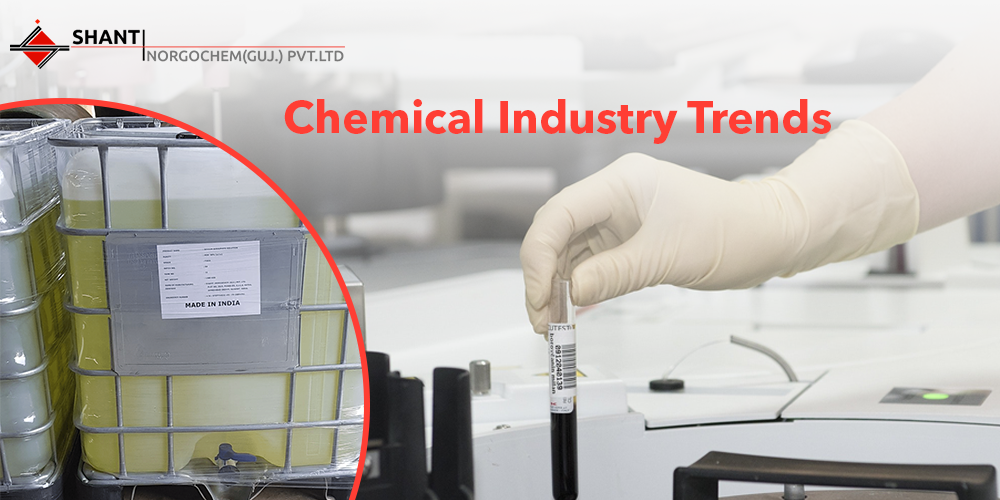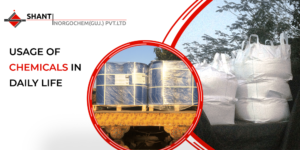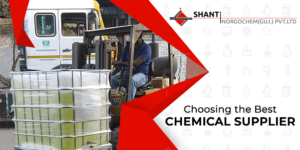A Comprehensive Guide on Various Uses of Chemicals in Daily Life
You can find chemistry and the use of chemicals all around you. Even the human body is made up of different chemicals. You might run away from your chemistry class because you don’t want to perform those grueling formulas, but believe it or not, they are a vital part of your everyday life. The air you breathe in, the food you consume, the cleaning that you do, the goods and clothing that you buy, the power and heat that you get, and even any object you feel or see- are all made up of chemicals.
Let’s talk more in detail about the chemicals used in our daily life.
Cleaning Products
The detergents that you use for cleaning include surface-active material, which is also called active surfactant. It helps in reducing the water surface tension for water to combine with fat or oil easily.
Detergents are used for washing clothes since the chemicals present in them help in the removal of dirt in the form of solid or liquid.
Similarly, the shampoo that we use for cleaning our scalp and hair includes a detergent ingredient that helps to reduce the tension in the water surface for saturating and rinsing your hair thoroughly. The fat is broken down by the shampoo to remove grease that is present in your hair.
Besides these, your toothpaste is also made up of abrasives (calcium carbonate, aluminum hydroxide, etc.) and water in addition to the other substances like dyes, sweeteners, microbe resisters, and sodium fluoride.
Chemicals like sodium sulphite powder are added in cleaning products so that you can protect your dishwasher or washing machine from corrosion. Sodium sulphite is an oxygen scavenger. When combined with oxygen that is present in the water, it forms sodium sulphate to bring down the content of dissolved oxygen for protecting your dishwasher or washing machine against rust.
Food Processing
Chemicals are vital building blocks for anything present in this universe. Even the food that you consume is composed of chemical substances. Many chemical products are highly significant in the production and preservation of food. For example, you can use additives to extend the shelf life of certain foods.
Even the materials that come in use for food packaging include chemical substances. When it comes to crops and farm animals, other chemicals too can be utilized for fighting diseases or can be used in the form of production processes like decontamination treatment, cooking, heating, etc.
You will commonly find these three kinds of chemical preservatives in your food –
- Sulphites, like sulphur dioxide
- Nitrites, like sodium nitrite
- Benzoates, like sodium benzoate
These classes of chemicals come in everyday foods that you buy. These chemicals kill the bacteria present in the menu or inhibit the growth and activities of specific varieties of bacteria.
Medicines
Apart from the active ingredients used in pharmaceutical preparations, chemical excipients are also used extensively in the pharmaceutical industry for several reasons. For example, some chemicals are used to produce medicine to increase the acceptability of the drug by the patient.
The excipients commonly found in medicinal drugs can be divided into several categories depending upon their functionality, such as suspending agents, lubricants, binders, preservatives, sweeteners, fillers, and glidants
In pharmaceutical preparations, chemicals are also used to improve the safety and effectiveness of the product. During usage and distribution, it becomes essential to identify the product, to provide aid in the process of manufacturing, and to preserve and improve the bioavailability and stability of a drug.
Certain chemicals like sodium bisulphite powder are used for the treatment of medical conditions, as well. It can be externally applied as a gastrointestinal antiseptic and for treating parasitic skin diseases. However, the usage of this chemical directly could lead to severe adverse effects. It is advised to consult a medical practitioner before using the compound.
Another chemical called acetylsalicylic acid comes in use while the production of different medicines, including Aspirin. We have been using this medicine since childhood for treating inflammations, fever, and pain.
Clothing (Textile industry)
Chemical processes may sometimes come in great use for improving the characteristics when clothes are made using textiles. For preventing the fabrics from wrinkles and for strengthening them, the textile industry makes use of various finishing agents.
A textile might have to pass through various non-chemical and chemical procedures during the manufacturing of clothes, including fabric refinement, printing, dyeing, pre-treatment, etc.
There are various uses of chemicals in the textile industry. Specific processes require highly specialized chemicals like water repellents, warp sizes, flame retardants, biocides, etc. In contrast, others require comparatively essential compounds or their combinations like starch, surfactants, emulsified oils, sulfonated oils, etc. Your favorite leather jacket is also made up of sodium bisulphite.
Treatment of Waste-water
Waste-water comes into treatment by mainly four types of chemicals – flocculants, anti-foaming agents, ph neutralizers, as well as coagulants. Ph neutralizers are the most utilized class of chemical compounds. This scenario is because the sewer system should not include waste-water that is too basic or too acidic. It helps in averting undesirable reactions when other effluents combine with the sewage.
Ph neutralizers hold even more significance if the outlets of waste-water are in direct link with a river or lake for the preservation of local ecosystems and wildlife.
Anti-foaming agents come in use for reducing the issues associated with foam that is usually present in waste-water, which can interfere with various industrial processes. The other two classes of chemicals work in a combined manner to clarify waste-water and remove the different kinds of suspended solids present in it. Sodium bisulphite solution comes in extensive use during the treatment of waste-water.
Fragrances
Typically, a smell-infused chemical compound is known to be a fragrance. Individual compounds are inclined to vaporize at room temperature or under pressure, which lets the aroma reach our olfactory nerves. This scenario is the reason you will see that a narrow neck bottle is used to keep the fragrance.
Fragrances and perfumes can be composed of organic or synthetic substances. Plant parts like flowers, wood, fruits, roots, etc. are used for generating natural fragrances. For instance, citrus comes from orange, and jasmine juice comes from jasmine.
Our skin gets a pleasant smell with perfumes, which are combinations of aroma compounds, solvents, essential oils, and fixatives.
Beauty Products
Various combinations of chemicals come in use while making cosmetics such as lipsticks, concealers, moisturizers, and others. They are added to provide feel and texture to these beauty products. Chemicals used in the beauty industry, too, can be either natural processed chemicals or synthetic chemicals.
Talc comes in great use in a wide range of cosmetics. Hydrated magnesium silicate is the chemical formula that comes in use while making talc. It then comes in use of concealers and different face powders.
Formaldehyde is another popular ingredient in much personal care and cosmetic products like nail polish remover, shower gel, skin moisturizer, liquid soap, hair straightening solution, etc.
Key Takeaways
Everywhere we look, we are in direct or indirect contact with diverse chemical substances, whether naturally occurring or synthetic. The best chemical suppliers cater to one or more of the industries that sustain the everyday life of people across the world.
